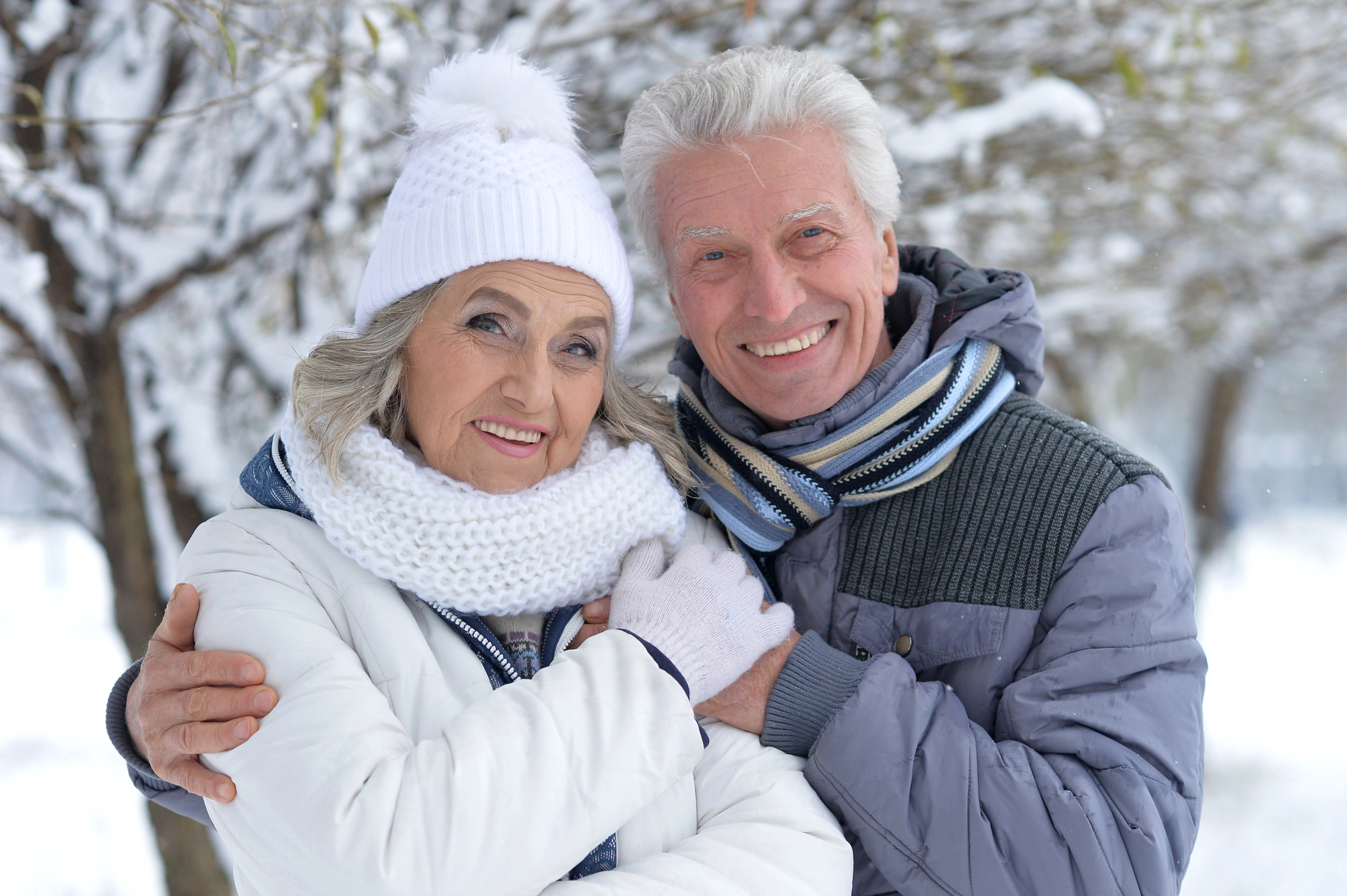As winter approaches, seniors face unique challenges due to colder temperatures, shorter days, and unpredictable weather conditions. With careful planning, older adults can stay safe, comfortable, and healthy throughout the winter season. Here’s a comprehensive guide for seniors to prepare for the winter months ahead.
Maintain Warmth Indoors
Keeping the home warm is essential for health and safety. Seniors are more susceptible to hypothermia, even indoors, where temperatures may feel colder as we age. Keep thermostats set to at least 68°F (20°C) and ensure that windows and doors are sealed to prevent drafts. Use thermal curtains or weather stripping to insulate the home further. Layering clothing indoors, such as wearing a light sweater or fleece, can add comfort without needing to raise the thermostat significantly.
Prepare a Winter Emergency Kit
Power outages are more common in winter, so it’s vital to have an emergency kit. Include flashlights, batteries, a battery-powered radio, bottled water, and non-perishable food items. A backup heat source, such as a propane heater, can be life-saving during extended outages but must be used safely to prevent carbon monoxide buildup. It’s also wise to keep a charged mobile phone nearby in case of emergencies.
Stay Active and Keep Moving
Cold weather can lead to more time spent indoors, but maintaining mobility is key to health and well-being. Simple indoor exercises, such as stretching, light weights, or even walking around the house, help keep joints flexible and muscles strong. Gentle exercises like yoga or chair aerobics can keep blood flowing, reduce stiffness, and help prevent falls.
Dress Appropriately for Outdoor Conditions
If venturing outside, dressing in layers is essential to stay warm. Choose moisture-wicking base layers to prevent dampness from sweat and insulate with a warm coat, scarf, gloves, and a hat to retain body heat. Shoes with non-slip soles provide better traction, reducing the risk of slips on icy or wet surfaces.
Prevent Falls in Icy Conditions
Falls are a significant concern for seniors, especially in icy or snowy weather. Ensure walkways, driveways, and steps are clear of snow and ice. Consider hiring a snow removal service if clearing snow is too physically demanding. Applying salt or sand to walkways adds traction, making outdoor surfaces safer. Indoors, use non-slip mats and secure rugs to prevent trips.
Monitor Your Health and Medications
Winter weather can exacerbate health issues, so staying on top of medications and regular check-ups is essential. Cold air can affect respiratory conditions, so those with asthma or chronic bronchitis should keep inhalers close by. Check that medications are fully stocked and have a plan to refill prescriptions before severe weather hits. Additionally, seniors should get a flu shot and consider other vaccinations, like the pneumococcal vaccine, to reduce their risk of winter illnesses.
Stay Connected with Loved Ones
Isolation can increase during the winter, which can impact mental health. Keep in touch with family, friends, and neighbors, especially if living alone. Set up a regular check-in system so that someone can confirm your well-being daily. Phone calls, video chats, or even letters can make a difference in staying connected and supported.
Stock Up on Supplies
Stock up on essentials, including canned goods, bottled water, toiletries, and medications, in case travel is limited. Having a stocked pantry and necessary supplies ensures you won’t need to venture out in bad weather for essentials. Additionally, consider purchasing a few cozy blankets, a humidifier, and high-quality moisturizers to combat dry winter air.
Preparing for winter involves proactive steps to stay safe, healthy, and comfortable. By ensuring a warm home, dressing appropriately, staying active, and remaining connected, seniors can enjoy the season with peace of mind.


